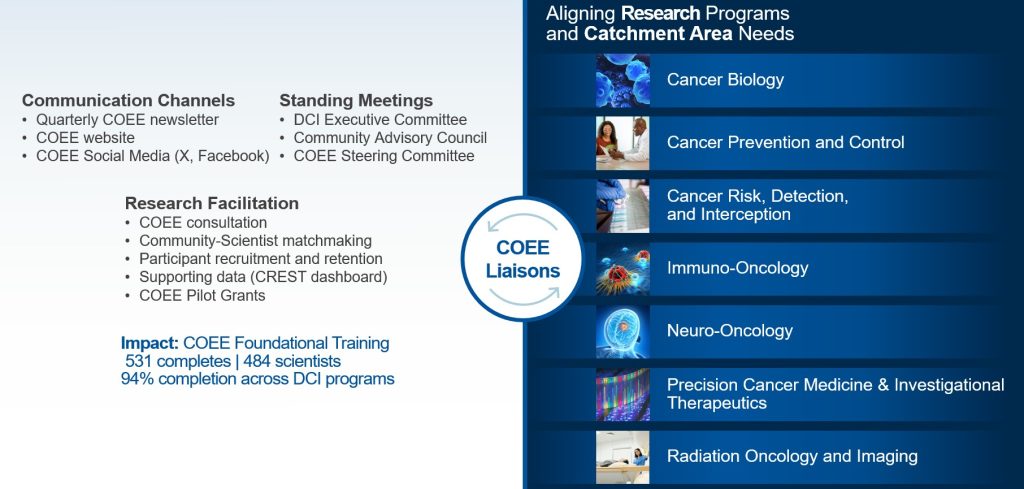For Scientists
Foster respectful bi-directional partnerships with diverse communities in reducing cancer burden and addressing cancer disparities

Request for Applications (RFA) for Cancer Research Pilot Projects
Grant funding is available for pilot projects that will:
- Focus on reducing the burden of cancer and advancing cancer health equity in diverse patients, populations, and communities in the DCI catchment area
- Address DCI catchment area priorities for cancer prevention, interception, early detection, treatment, and outcomes for cancers including but not limited to: Colorectal, Breast, Gastric, Lung, and Prostate Cancer
- Address DCI catchment area priority risk factors including but not limited to: Tobacco and Obesity
- Address cancer disparities in DCI catchment area communities including but not limited to: Racial or Ethnic disparities, Rural disparities, Socioeconomic disparities, and Other Vulnerable Populations
Applications must include:
- A Community Engagement Plan that describes the cancer disparity being evaluated or addressed, the ways patient or community perspectives are incorporated into the research plan and strategy, and steps for continuous engagement of the patient or community group during and beyond the grant period
- A description of the process of outreach and/or recruitment to diverse patients or communities impacted by the disease
- A plan for dissemination of research findings to communities involved in the research project
- Collaborations with a community partner—contact DCICOE@duke.edu at least 4-weeks prior to submission for help identifying a collaborator
For preliminary data on DCI catchment area priorities, demographics, and disparity estimates, visit the CREST Dashboard after requesting access. For additional context about community engagement and diverse perspectives and priorities across DCI’s catchment communities, complete the COEE Foundational Training.
Please feel free to schedule a meeting with the COEE office for assistance with identifying community partners, designing community-engaged methodologies, and accessing relevant resources such as the DCI CREST dashboard.


